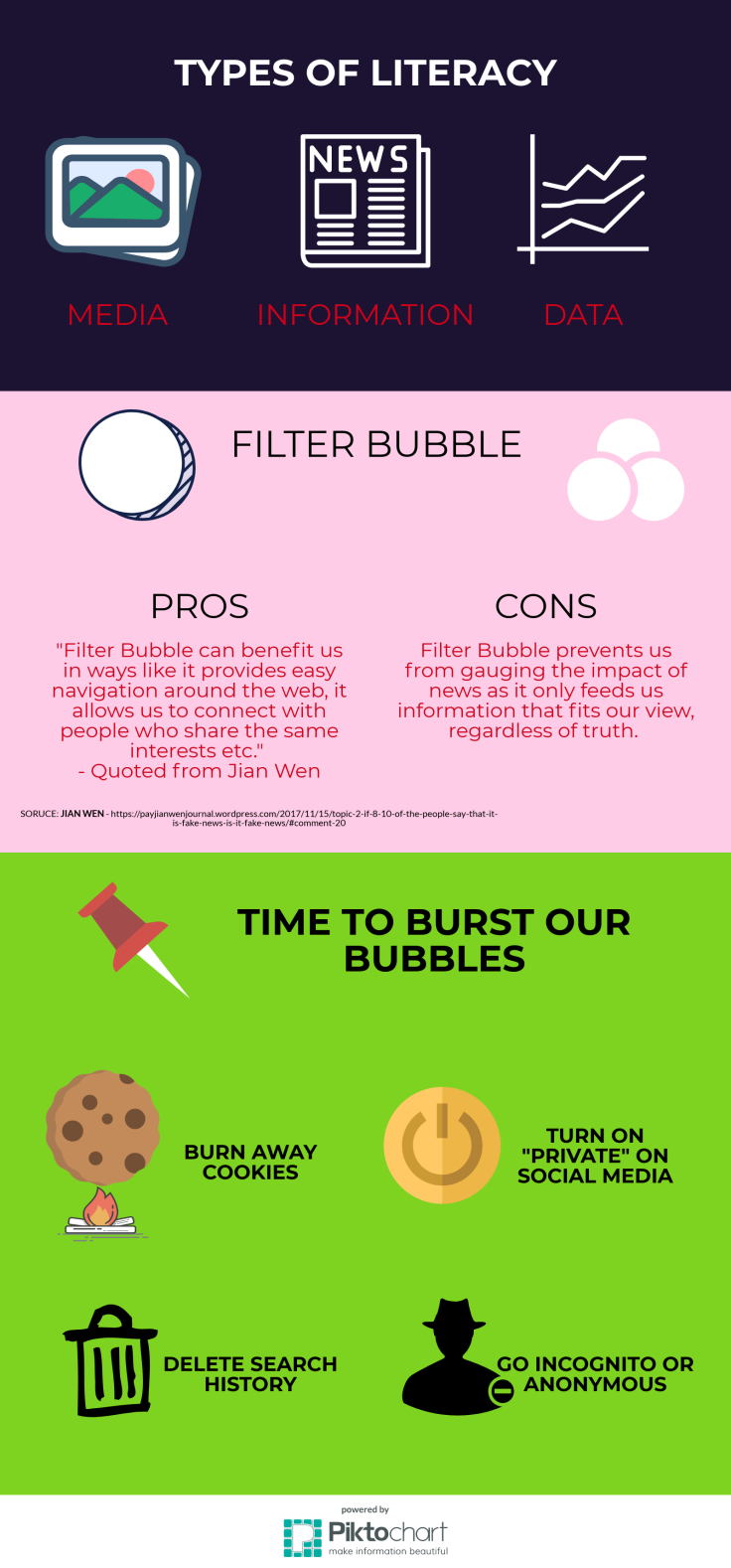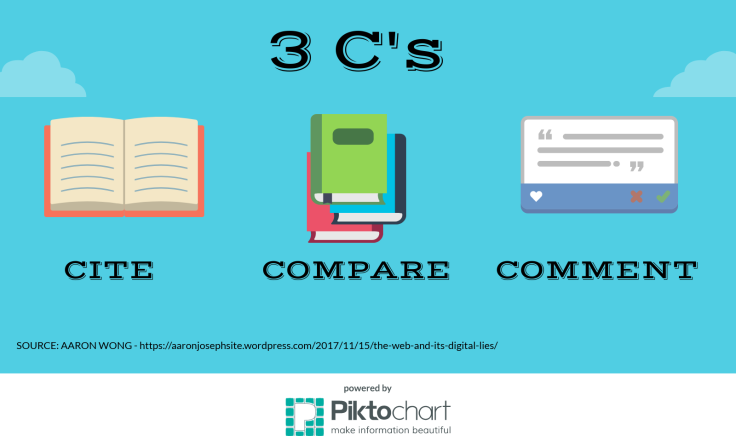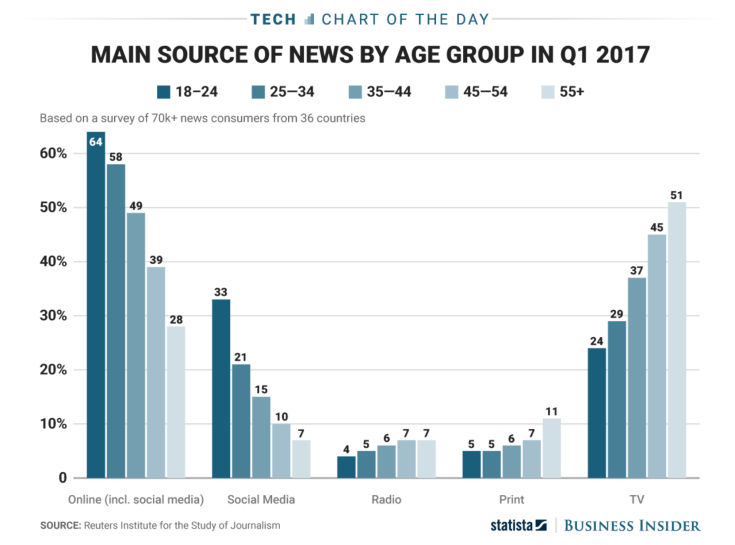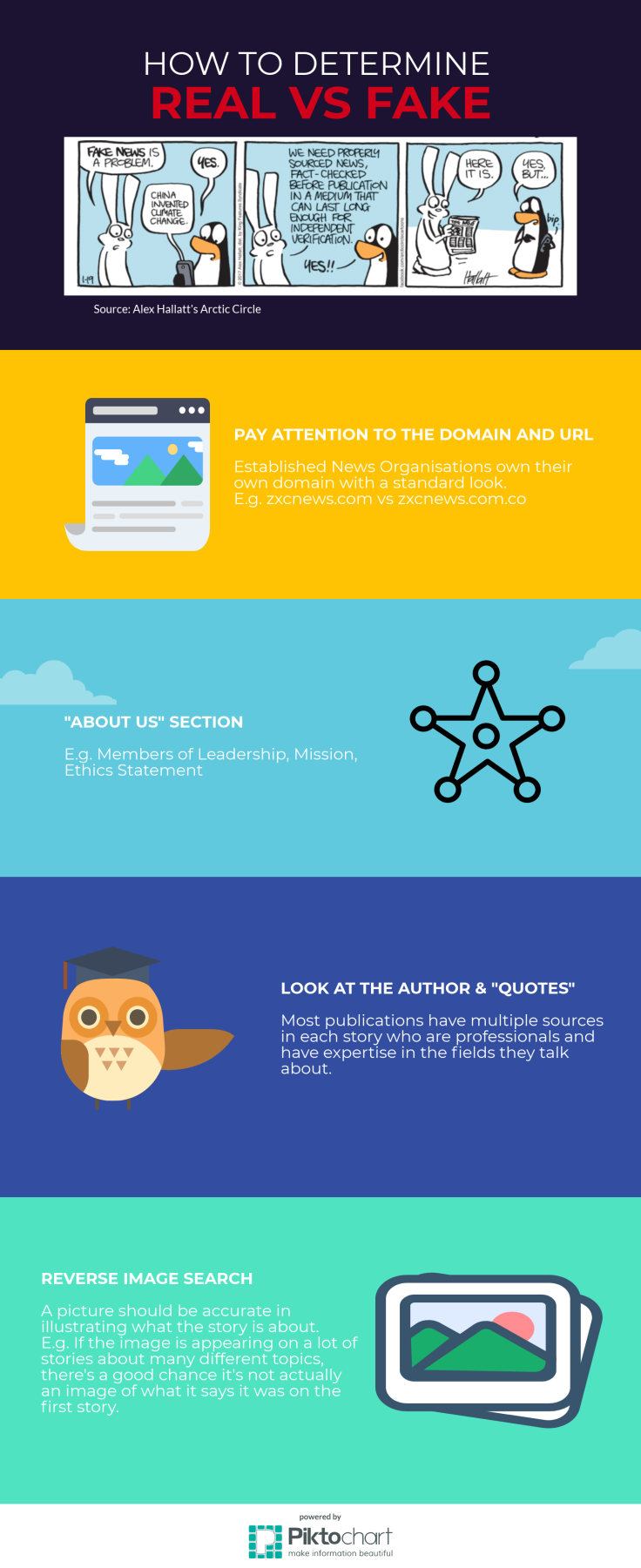In this digital era, information is obtained easily. But there’s a catch, how much of it is real? Before #MANG2049, I never knew that a wrong piece of information sometimes could mean life and death. Therefore, there is a need to learn about them.
 Source: Self – Produced Via Pikochart
Source: Self – Produced Via Pikochart
From Shilin‘s blog, I understand that there may be propaganda behind the news. But we as an individual cannot do much about it. To protect ourselves, the importance of evaluating information becomes our top priority.
 Source: Self – Produced Via Pikochart
Source: Self – Produced Via Pikochart
From Aaron‘s blog, I learnt about a simple way to remember how to evaluate the quality of information and it is using the 3 C’s.
From Jianwen‘s blog, I learnt that everyone plays a role in countering “Fake News”. As an individual, we need to be critical of the information we receive so as to gain a wider perspective. Government as well as the media organisations, such as Facebook and Twitter, are trying to combat the situation.
From Jennifer‘s comment, I learnt that the Singapore government will soon be implementing a new law to punish the maker of fake news. This will provide a warning to those troublemakers that there will be consequences as well as inform citizens the seriousness of fake news.
In this time of crisis, every individual plays an important role on the Web. There is a saying – “People aren’t always going to be there for you, that’s why you learn to handle things on your own.” Web users need to learn to have good judgement of whether an information is reliable and have to be responsible for what they create as well as sharing of information.
(283 Words)
Comments:
Reference:
Media Literacy – Learning in the Network Age – University of Southampton. (n.d.). Retrieved November 16, 2017, from https://www.futurelearn.com/courses/learning-network-age/3/steps/263021
Data Literacy – Learning in the Network Age – University of Southampton. (n.d.). Retrieved November 16, 2017, from https://www.futurelearn.com/courses/learning-network-age/3/steps/263023
Information Literacy – Learning in the Network Age – University of Southampton. (n.d.). Retrieved November 16, 2017, from https://www.futurelearn.com/courses/learning-network-age/3/steps/263022
Josh Constine – Facebook Tries Fighting Fake News. Retrieved November 16, 2017, from https://techcrunch.com/2017/10/05/facebook-article-information-button/
James Carson – Fake News – What exactly is it. Retrieved November 16, 2017, from http://www.telegraph.co.uk/technology/0/fake-news-exactly-has-really-had-influence/


 Source: Reuters Institute for the Study of Journalism
Source: Reuters Institute for the Study of Journalism Source: Self-produced using information from NPR.org
Source: Self-produced using information from NPR.org